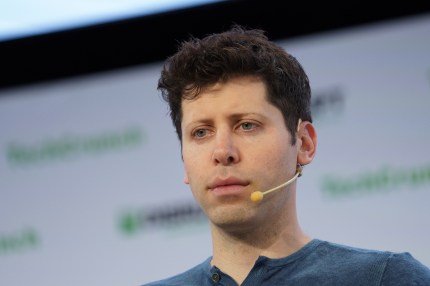In late December, The New York Times sued OpenAI and its close collaborator and investor, Microsoft, for allegedly violating copyright law by training generative AI models on the Times’ content. Today, OpenAI gave a public response, claiming — unsurprisingly — that the Times’ lawsuit is meritless.
In a letter published this afternoon on OpenAI’s official blog, the company reiterates its view that training AI models using publicly available data from the web — including articles like the Times’ — is fair use. In other words, in creating generative AI systems like GPT-4 and DALL-E 3, which “learn” from billions of examples of artwork, ebooks, essays and more to generate human-like text and images, OpenAI believes that it isn’t required to license or otherwise pay for the examples — even if it makes money from those models.
“We view this principle as fair to creators, necessary for innovators and critical for U.S. competitiveness,” OpenAI writes.
OpenAI also addresses in its letter regurgitation, the phenomenon where generative AI models spit out training data verbatim (or near-verbatim) when prompted in a certain way — for example, generating a photo that’s identical to one taken by a famous photographer. OpenAI makes the case that regurgitation is less likely to occur with training data from a single source (e.g., The New York Times) and places the onus on users to “act responsibly” and avoid intentionally prompting its models to regurgitate.
“Interestingly, the regurgitations The New York Times [cites in its lawsuit] appear to be from years-old articles that have proliferated on multiple third-party websites,” OpenAI writes. “It seems they intentionally manipulated prompts, often including lengthy excerpts of articles, in order to get our model to regurgitate. Even when using such prompts, our models don’t typically behave the way The New York Times insinuates, which suggests they either instructed the model to regurgitate or cherry-picked their examples from many attempts.”
OpenAI’s response comes as the copyright debate around generative AI reaches a fever pitch.
In a piece published this week in IEEE Spectrum, noted AI critic Gary Marcus and Reid Southen, a visual effects artist, show how AI systems, including DALL-E 3, regurgitate data even when not specifically prompted to do so — making OpenAI’s claims to the contrary less credible. Marcus and Southen, in fact, make reference to The New York Times lawsuit in their piece, noting that the Times was able to elicit “plagiaristic” responses from OpenAI’s models simply by giving the first few words from a Times story.
The Times is only the latest copyright holder to sue OpenAI over what it believes is a clear violation of IP laws.
Actress Sarah Silverman joined a pair of lawsuits in July that accuse Meta and OpenAI of having “ingested” Silverman’s memoir to train their AI models. In a separate suit, thousands of novelists, including Jonathan Franzen and John Grisham, claim OpenAI sourced their work as training data without their permission or knowledge. And several programmers have an ongoing case against Microsoft, OpenAI and GitHub over Copilot, an AI-powered code-generating tool, which the plaintiffs say was developed using their IP-protected code.






























Comment